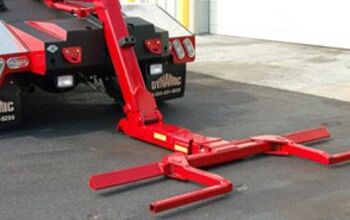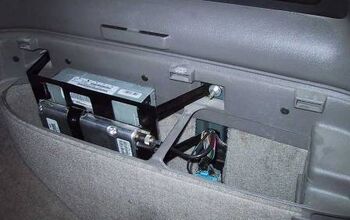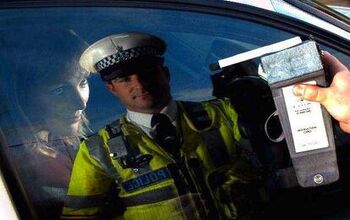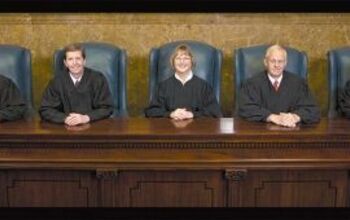Unreasonable Search and Seizure
Just days after the Supreme Court ruled that cities could take homes from private owners to build strip malls, the US House of Representatives issued a non-binding condemnation of the court's decision. While the publicity firestorm could eventually result in stronger laws against public seizure of private property, state governments are happy to continue confiscating automobiles like property rights never existed.
The number of excuses given for government automobile seizures is expanding dramatically. Since 1991, the Commonwealth of Virginia has permanently seized 6,450 automobiles for crimes ranging from drug-running to "frequenting a bawdy place." Now other jurisdictions are deploying new technologies to seize cars for the most minor offenses imaginable. The case of New Haven, Connecticut resident Kathy Martone illustrates this appalling erosion of property rights.
Earlier this year, when Martone left her house to walk her dog, she discovered that her Plymouth Neon had been grabbed right out of her driveway. The culprit: The City of New Haven. Using a handheld camera with Automatic Number Plate Recognition (ANPR) technology, a marshal identified her car as a vehicle with $85 in unpaid parking tickets. Like 1,800 other individuals, Martone's car was seized by the city and held for ransom (original fine plus recovery costs).
The ANPR technology that helped New Haven police nab Martone's car was originally developed to locate stolen vehicles. Last year, in a large-scale ANPR test, UK police officers snapped 28 million digital photos, stopped 180,000 individuals for questioning and recovered some 1,100 stolen vehicles. They also discovered a new purpose for their cameras: revenue generation. Police used the system to issue 51,000 tickets to drivers for offenses ranging from speeding, to drinking from a water bottle, to talking on a mobile phone. Ecstatic UK officials now plan to equip every police force in the country with ANPR.
When Arlington, Virginia Treasurer Frank O'Leary learned of the technology, he too was ecstatic. "I rub my hands together in great glee and anticipation," he said in a television interview. "I think it's beautiful. It gives us a whole new dimension to collection." Currently, Arlington's Bootfinder targets anyone owing $120 to the city for any reason-– even overdue library books. It has generated hundreds of thousands of dollars in "new" revenue. New Haven's setup likewise pulled in a cool million in just the first six months of operation.
Predictably enough, that kind of cash has drawn a lot of attention from cities across the country. Chicago, Detroit, Los Angeles, San Diego and Tampa have all tested similar systems. Although each considers the ANPR test a "success", none care that city databases contain a built-in margin of error. For example, the city of Annapolis, Maryland recently accused 2,000 residents of not paying their parking fines– even though they had done so. The city quickly compounded the error by sending another round of delinquency notices to 5,000 innocent residents.
Before ANPR-facilitated seizure was deemed acceptable, a screwed-up parking ticket database was a minor hassle. Now it's a Constitutional nightmare, mocking fundamental and cherished legal protections: the right to be presumed innocent, the right to a trial by jury, the right not to have excessive fines imposed, the right not to be searched or have your property seized without reason or warrant, and the right to due process.
States conducting automotive seizure rely on a doctrine found in a 1931 Supreme Court ruling stating "It is the property which is preceded against, and, by resort to a legal fiction, held guilty and condemned as though it were conscious instead of inanimate and insentient." In other words, it's OK to confiscate your car because you forgot to pay an $85 parking ticket; you didn't commit the crime, your car did. In 1980, the 7th Circuit Court of Appeals reaffirmed the concept, convicting a 1976 Mercedes Benz 280S of drug-running. The Bill of Rights, the court argued, applies to people not to cars.
Albuquerque, New Mexico agrees. It's the first jurisdiction to combine a seizure ordinance with a red light camera. If your car-– no matter who was driving-– blows through two red lights, they'll take it for thirty days. The more cities follow suit, adopting get-rich-quick red light and speed camera schemes, the more likely you are to lose your wheels. If you forget to file a change of address form with the city, or the post offices loses your ticket in the mail, the first time you realize you've committed a "crime" will be when your car disappears.
The Supreme Court's ruling on home seizures is a wakeup call to every American. While the issue is hot, contact your state legislator and demand repeal of automobile seizure laws as well. Otherwise, the state will soon become the number one practitioner of grand theft auto, with your car constantly in its sights.
More by Richard Diamond
Latest Car Reviews
Read moreLatest Product Reviews
Read moreRecent Comments
- Zipper69 "At least Lincoln finally learned to do a better job of not appearing to have raided the Ford parts bin"But they differentiate by being bland and unadventurous and lacking a clear brand image.
- Zipper69 "The worry is that vehicles could collect and share Americans' data with the Chinese government"Presumably, via your cellphone connection? Does the average Joe in the gig economy really have "data" that will change the balance of power?
- Zipper69 Honda seem to have a comprehensive range of sedans that sell well.
- Oberkanone How long do I have to stay in this job before I get a golden parachute?I'd lower the price of the V-Series models. Improve the quality of interiors across the entire line. I'd add a sedan larger then CT5. I'd require a financial review of Celestiq. If it's not a profit center it's gone. Styling updates in the vision of the XLR to existing models. 2+2 sports coupe woutd be added. Performance in the class of AMG GT and Porsche 911 at a price just under $100k. EV models would NOT be subsidized by ICE revenue.
- NJRide Let Cadillac be Cadillac, but in the context of 2024. As a new XT5 owner (the Emerald Green got me to buy an old design) I would have happy preferred a Lyriq hybrid. Some who really like the Lyriq's package but don't want an EV will buy another model. Most will go elsewhere. I love the V6 and good but easy to use infotainment. But I know my next car will probably be more electrified w more tech.I don't think anyone is confusing my car for a Blazer but i agree the XT6 is too derivative. Frankly the Enclave looks more prestigious. The Escalade still has got it, though I would love to see the ESV make a comeback. I still think GM missed the boat by not making a Colorado based mini-Blazer and Escalade. I don't get the 2 sedans. I feel a slightly larger and more distinctly Cadillac sedan would sell better. They also need to advertise beyond the Lyriq. I don't feel other luxury players are exactly hitting it out of the park right now so a strengthened Cadillac could regain share.






































Comments
Join the conversation